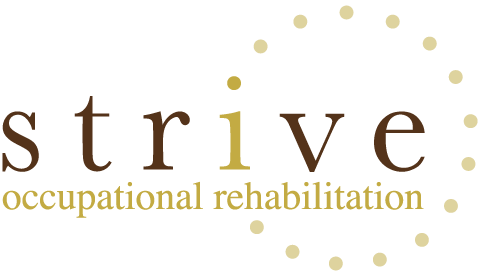By Elle Balchin, Rehabilitation Consultant – OT
Look I‘m just going to say it – receiving negative feedback sucks.
When I receive negative feedback (no matter how well-intentioned), my immediate response is to shame myself. I know it’s not productive, but if I’m being honest it’s true. I start to think, “man am I an idiot for doing ___”. This definitely goes beyond work too – in my personal life when someone points out a mistake or makes a comment about a risk that didn’t pay off, boy, does that hit hard. I’m working on being kinder to myself , but the fact is that negative feedback is always a bit of a blow.
When you receive negative feedback, the focus is on what’s lacking, be that specific skills, time, strategy, anything. When I think about that mindset from a psychological perspective, I know that there is so much research suggesting that focusing on the things we lack or the things we aren’t good at has a really poor impact on our ability to change those things or learn the skills we lack. And it got me thinking about homeostasis.
In tenth grade biology I learnt all there is to know about positive and negative feedback loops in the natural world, and as a tutor, I taught those things to my students over and over again. I honestly kind of thought it would end up like trigonometry – fading into the abys of unused high school knowledge never to be used again.
In biology, a “negative feedback loop” is where “an event initiates an antagonist response to maintain homeostasis”. For those of you playing along at home, basically that means that something happens, then the opposite happens to maintain balance. For example, when you get hot, your skin will sweat so that your body temp can cool down. A social example is when a child hits you, and you tell them “no! that’s naughty” in the hope that they will cease the naughty behaviour.
Negative feedback maintains homeostasis. Negative feedback maintains a certain way of being.
A “positive feedback loop” is one where “an event initiates an increase or amplification of the same reaction”. In nature, when one apple on a tree starts to ripen, it gives off a gas that encourages the rest of the fruit around it to also ripen – resulting in a tree abundant with fragrant fruit. Socially, this might look like a giving a treat to a child as a reward for being kind or generous, which encourages them to continue or repeat good behaviour.
Positive feedback encourages growth and change.
Negative feedback loops certainly have their place in nature and in social contracts – without them our survival as organisms would be in danger, and people wouldn’t know that there are consequences for undesirable behaviours. But, negative feedback does not encourage growth. So, if you’re looking for creativity, innovation, and change – positive feedback is what you need.
Sometimes in workplaces using negative feedback is used when we are time poor or needing generalise feedback to a wider audience. However, we can’t then simultaneously expect staff to be awesome creative problem solvers or innovators. The two just don’t work together. Of course, in performance management you need to set boundaries and expectations for behaviour, and consequences must be enforced. But for staff who are doing the right thing and searching for encouragement, how do we flip the switch?
There’s a quote I love by Pubilius Syrus that says – “You can accomplish with kindness what you cannot by force” that I think fits perfectly here. When you approach feedback from a place of kindness and openness, you have the ability to elicit a better response and better uptake from the team.
People are much more likely to learn and be creative if presented with positive feedback – comments like “hey, you’re going great, keep it up!” or “I love where this is going, can’t wait to see more” are positive, and encourage more of the same. They spark a constructive response, rather than stifling action.
So, let’s get sparking!
#StriveToBeMindful

 Simple self-care in difficult times
Simple self-care in difficult times